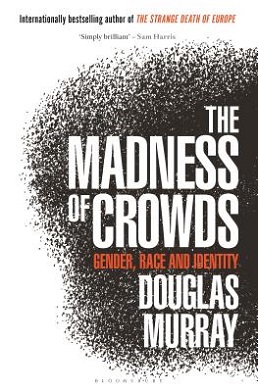
Xenophobia is the fear or dislike of anything which is perceived as being foreign or strange. It is an expression which is based on the perception that a conflict exists between an in-group and an out-group and it may manifest itself in suspicion of one group's activities by members of the other group, a desire to eliminate the presence of the group which is the target of suspicion, and fear of losing a national, ethnic, or racial identity.

Wilhelmus Simon Petrus Fortuijn, known as Pim Fortuyn, was a Dutch politician, author, civil servant, businessman, sociologist and academic who founded the party Pim Fortuyn List in 2002.

Kitsch is a term applied to art and design that is perceived as naïve imitation, overly eccentric, gratuitous or of banal taste.
Islamophobia is the irrational fear of, hostility towards, or hatred against the religion of Islam or Muslims in general. Islamophobia is primarily a form of religious or cultural bigotry; and people who harbour such sentiments often stereotype Muslims as a geopolitical threat or a source of terrorism. Muslims, with diverse ethnic and cultural backgrounds, are often inaccurately portrayed by Islamophobes as a single homogenous racial group.

The History of Sexuality is a four-volume study of sexuality in the Western world by the French historian and philosopher Michel Foucault, in which the author examines the emergence of "sexuality" as a discursive object and separate sphere of life and argues that the notion that every individual has a sexuality is a relatively recent development in Western societies. The first volume, The Will to Knowledge, was first published in 1976; an English translation appeared in 1978. The Use of Pleasure, and The Care of the Self, were published in 1984. The fourth volume, Confessions of the Flesh, was published posthumously in 2018.

Sir Roger Vernon Scruton, was an English philosopher, writer, and social critic who specialised in aesthetics and political philosophy, particularly in the furtherance of traditionalist conservative views.

John O'Sullivan, CBE is a British conservative political commentator and journalist. From 1987 to 1988, he was a senior policy writer and speechwriter in 10 Downing Street for Margaret Thatcher when she was British prime minister and remained close to her up to her death.

Mark Carwardine is a British zoologist who achieved widespread recognition with his 20-year conservation project – Last Chance to See – which involved round-the-world expeditions with Douglas Adams and Stephen Fry. The first series was aired on BBC Radio 4 in 1990, and the second, a TV series, on BBC2 in 2009. There are two books about the project: Last Chance to See, which he co-wrote with Adams (1990), and Last Chance to See: In the footsteps of Douglas Adams (2009). He is a leading and outspoken conservationist, and a prolific broadcaster, columnist and photographer.
The Strange Death of Liberal England is a book written by George Dangerfield and published in 1935. Its thesis is that the Liberal Party in the United Kingdom ruined itself in dealing with the House of Lords, women's suffrage, the Irish question, and trade unions, during the period 1906–1914.

Fortuynism is the political ideology of Dutch politician Pim Fortuyn. Observers variously saw him as a political protest targeting the alleged elitism and bureaucratic style of the Dutch purple coalitions, as offering "openness, directness and clearness", populism simply as charisma. Another school holds Fortuynism as a distinct ideology, with an alternative vision of society. Some argue that Fortuynism is not just one ideology, but that it contained liberalism, populism and nationalism.

Douglas Murray is a British author and conservative political commentator, cultural critic, and journalist. He founded the Centre for Social Cohesion in 2007, which became part of the Henry Jackson Society, where he was associate director from 2011 to 2018.
British neoconservatism is an ideology that is a strong proponent of foreign intervention in the Arab world and beyond, supports the role of the private sector in military contracts and is in favour of an alliance with Israel. It shares a world view with its American counterpart in regards to threats and opportunities.

Thinkers of the New Left is a book by the conservative English philosopher Roger Scruton published by Longman in 1985, in which the author harshly criticizes the writings of authors he considers as representative of the New Left. The book proved controversial and according to Scruton its reception damaged his academic career. Some of the material in the book appeared in reworked form in a 2015 book titled Fools, Frauds and Firebrands: Thinkers of the New Left.

Mark Dooley is an Irish philosopher, writer and newspaper columnist. A specialist in continental philosophy, theology and the philosophy of religion, he is the author of several books, including The Politics of Exodus: Kierkegaard's Ethics of Responsibility (2001), Roger Scruton: The Philosopher of Dover Beach (2009), and Why Be a Catholic? (2011).
The Tyranny of Guilt: An Essay on Western Masochism is a book by Pascal Bruckner about the origin and political impact of the contemporary political culture of Western guilt. It was published in French in 2006 as La Tyrannie de la Pénitence: Essai sur le Masochisme Occidental and in English in 2010.
Relations between the Catholic Church and Islam deals with the current attitude of the Catholic Church towards Islam, as well as the attitude of Islam towards the Catholic Church and Catholics, and notable changes in the relationship since the 20th century.
Allegations of Islamophobia in the UK Conservative Party have been made, including against senior politicians, such as Boris Johnson, Michael Gove and Zac Goldsmith. Baroness Warsi, former co-chair of the Conservative Party, said in 2018 that anti-Muslim prejudice had "poisoned" the party. Many Muslim party members welcomed Warsi's comments, saying that they felt the issue had been marginalised within the party.

Conservatism: An Invitation to the Great Tradition is a 2017 book by English philosopher Roger Scruton, in which the author outlines the development of modern conservatism. It is intended as an introduction to conservatism, with the author stating, "I have written this book in the hope of encouraging well-meaning liberals to take a look at what [the] arguments [for conservatism] really are”.

The Madness of Crowds: Gender, Race and Identity is a 2019 book by conservative British journalist and political commentator Douglas Murray. It was published in September 2019. The book attracted polarized reviews.
Ziya Us Salam is an Indian author, literary critic, journalist and social commentator, who has worked for The Hindu Group since 2000. In addition to serving as the associate editor for magazine Frontline, he also wrote several columns on sociocultural issues and book reviews for the magazine.













